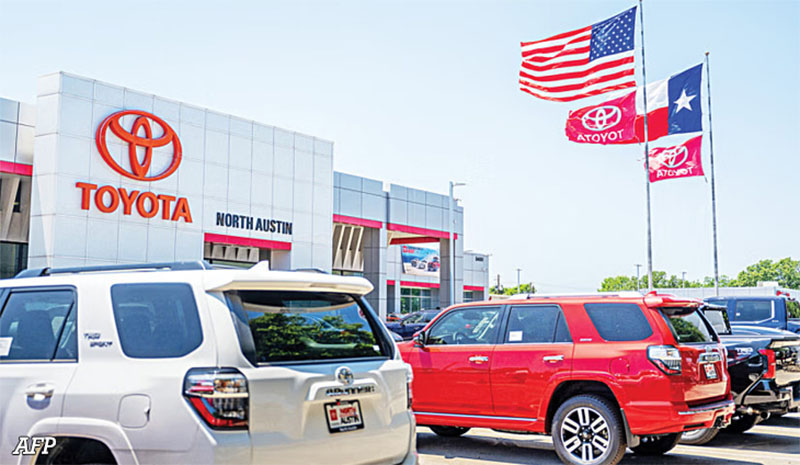Photo Credit: Getty Images
Japan's corporate landscape witnessed significant upheaval as Toyota Industries experienced its steepest market decline in nearly a year. The dramatic 13% plunge in share value reflects investor skepticism surrounding a massive $33 billion privatization proposal from Toyota Group companies.
The buyout offer emerged amid Japan's intensifying campaign to dismantle cross-shareholding arrangements that have defined corporate relationships for decades. Japan's Financial Services Agency has been actively pressuring companies to reduce these interconnected ownership structures. Toyota Industries, founded by Sakichi Toyoda in the early 20th century, represents a cornerstone of Japan's most powerful business empire.
Market reactions revealed deep concerns about the proposal's financial structure. The tender offer price of ¥16,300 per share fell significantly below Tuesday's closing price of ¥18,400, representing an 11% discount that troubled analysts. "The offer price was below the midpoint of the valuation range given by the commissioned independent financial advisers," noted Arun George, a global equity research analyst on SmartKarma.
Corporate governance issues further complicated investor sentiment. "The special committee requested three times that the offeror improve its JPY16,300 final offer, but was rebuffed," George explained. This resistance highlighted tensions between independent oversight and family control ambitions.
The deal's financing structure involves multiple Toyota Group entities creating a new holding company. Toyota Fudosan will contribute ¥180 billion, while Toyota Motor Chairman Akio Toyoda personally invests ¥1 billion. Toyota Motor's ¥700 billion investment through non-voting preferred shares demonstrates the complex ownership restructuring involved.
Banking giants Sumitomo Mitsui Banking Corporation, MUFG Bank, and Mizuho Bank will provide additional loan financing. This collaborative approach reflects the deal's unprecedented scale within Japan's automotive sector.
Historical context adds significance to this corporate maneuver. "Toyota employed cross-shareholding back in 2005 to protect itself against acquisition threats," explained Satoru Aoyama, head of corporate ratings at Fitch Ratings in Japan. The current unwinding represents a strategic reversal driven by regulatory pressure and governance reform.
Industry experts anticipate broader implications beyond this single transaction. "Going forward, there will be more of these unwinding of cross shareholdings amongst the Toyota Group," predicted Kei Okamura, managing director at Neuberger Berman. This trend could reshape Japan's entire corporate ecosystem.
The timing coincides with challenging global automotive conditions. President Trump's announcement of 25% automobile import duties in April created additional pressure on Japanese manufacturers. Analysts identified Toyota Motor as particularly vulnerable due to substantial U.S. market exposure.
Long-term strategic benefits may offset immediate market turbulence. "Over the mid- to long-term, if these shareholdings are going to be unwound and if the proceeds are going to be used for growth investments, it bodes well for capital returns," Okamura observed.
The buyout proposal would rank among history's largest privatization deals while potentially strengthening family control over Toyota's founding company. This corporate restructuring reflects Japan's evolving approach to business governance and international competitiveness in an increasingly complex global marketplace.


